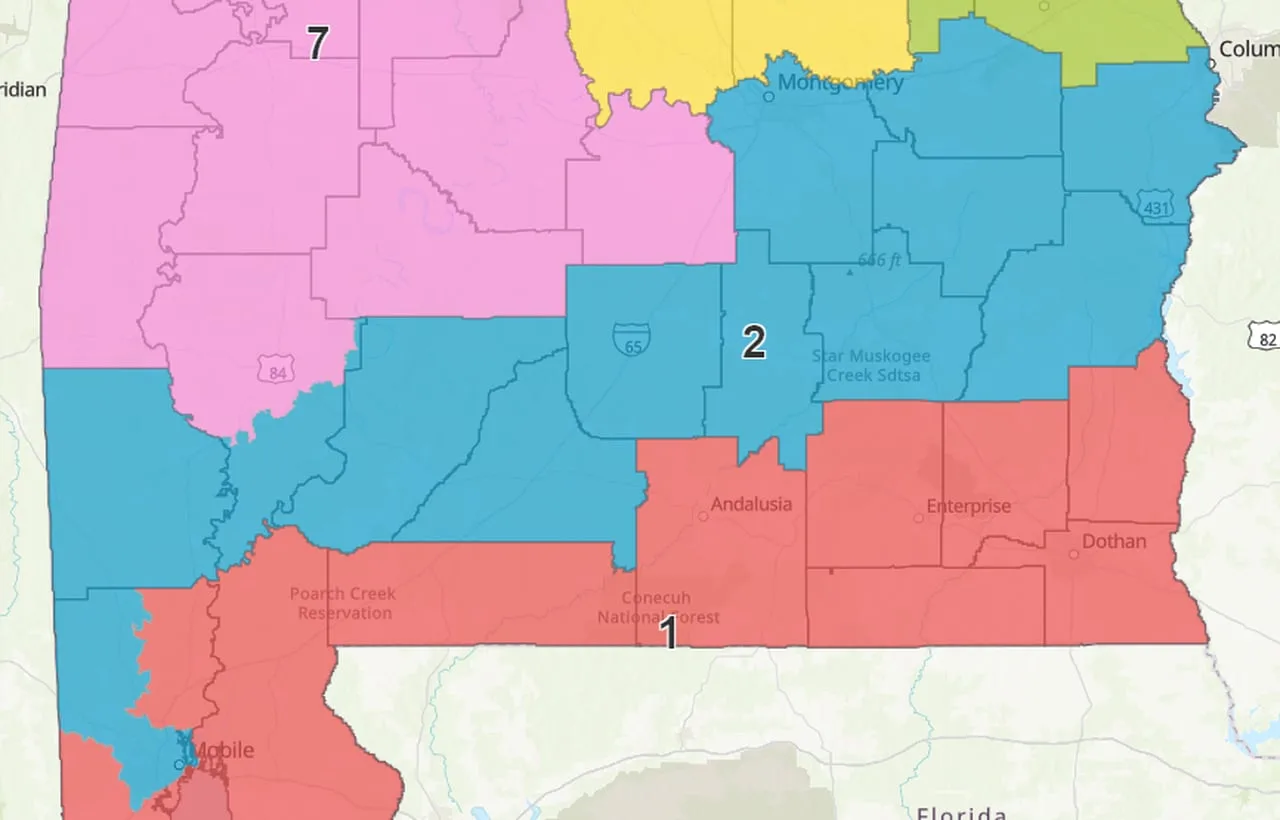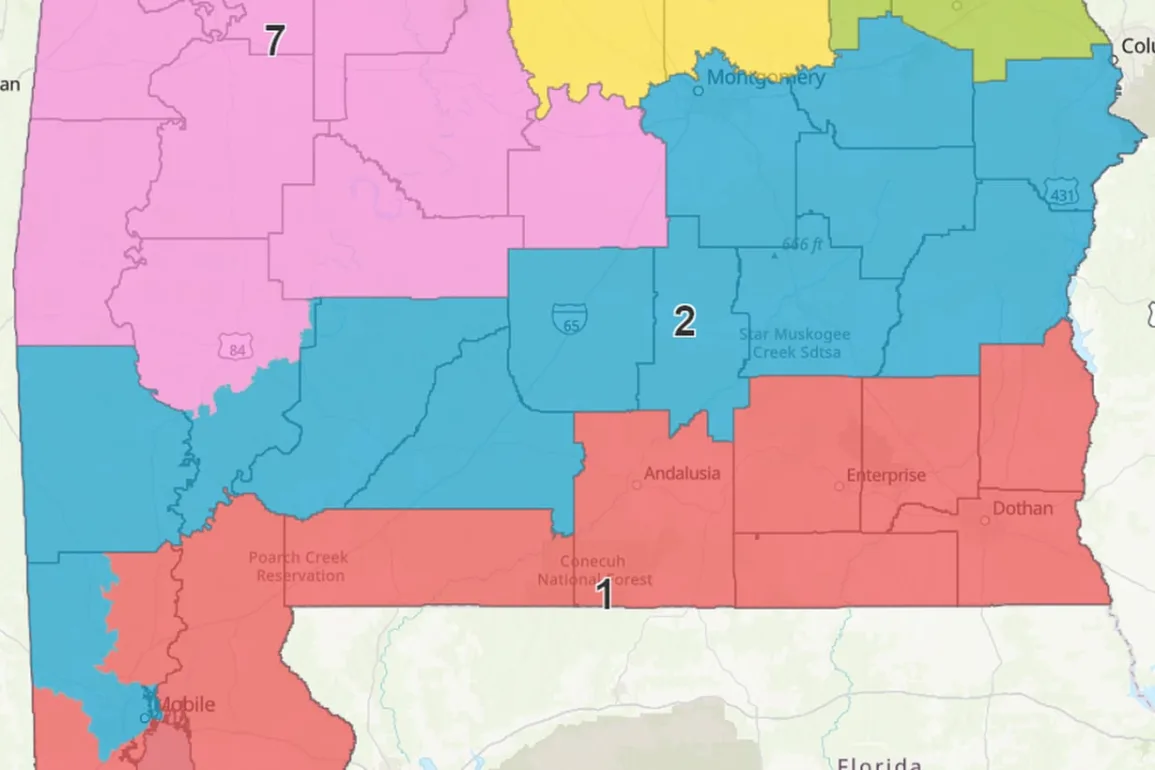Stacey Thomas Shepperson grew up in Washington County in southwest Alabama, home to about 15,000 people and a place that Shepperson needs more good jobs, just like across much of the 2nd Congressional District.
Shepperson, 52, a math instructor at Bishop State Community College and a business owner, believes she has the know-how and background to help attract those jobs and bring about change that can last generations.
“There’s a lot of flight, a lot of young people who go off to college,” Shepperson said. “They typically don’t come back and live at home. You have to ask the question, well, why not? What are we offering to them that entices them to want to come back?
“Again, that goes back to creating an economic plan that would afford that opportunity. And I think if that was there, we would see more growth and more longevity or stability within our rural communities.”
Shepperson, a first-time candidate, is one of eight Republicans seeking the GOP nomination in Alabama’s redrawn 2nd District. Thirteen Democrats are running. The total number of candidates is more than in Alabama’s six other congressional races combined. The primary is March 5.
Read more: Who’s running? 21 candidates join race in Alabama’s redrawn 2nd Congressional District
In October, a three-judge federal court approved the new map that changed the 2nd District from a safe Republican district to one where Democrats can win.
There is no incumbent. U.S. Rep. Barry Moore, R-Enterprise, who is in his second term, is running in the 1st District after his hometown, Enterprise, was drawn into that district. Moore is challenging U.S. Rep. Jerry Carl, R-Mobile.
The 2nd District goes from the Georgia line, though Montgomery, to Shepperson’s home county on the Mississippi line. It includes part of north Mobile County, including Saraland, where Shepperson lives.

Alabama’s new 2nd Congressional District on a map approved by a federal court in October. The map will be used for the first time in the 2024 elections. (Image from the Legislature’s Reapportionment Office)Mike Cason/AL.com
While the race is Shepperson’s first, she is not new to politics.
“Although this is my first run, I’ve worked with politicians on both side of the aisles for years on community projects, economic development,” Shepperson said.
“I’ve worked with nonprofit agencies throughout the counties in the Black Belt and the Gulf Coast with economic development projects and agricultural projects,” she said.
Shepperson’s father, Fred Thomas, was an educator who became a politician and community leader, serving as president of the Washington County school board.
Shepperson has taught at Bishop State for about seven years. Shepperson’s business, raising crawfish to supply local grocery stores and restaurants, suffered during the pandemic, but she said she is working to bring it back.
“I understand as a small business owner COVID was devastating for all of us,” Shepperson said. “So I understand the plight of having to rebound.”
Shepperson said her father worked effectively with Democrats and Republicans and said she will do the same. She counts that ability as one of the factors that make her a unifying candidate.
“Beyond the fact that I’m an African American female, I’m also one that has been on both sides of the aisle in working with people,” Shepperson said. “Because at the end of the day, everyone wants the opportunity to be able to grow their communities in a positive light. That means we need to have economic development activities and opportunities that are there.
“I’ve had the opportunity to meet and work with organizations that are trying to do just that. Irrespective of their race or their gender or their party affiliation, I’ve been able to do that.”
Alabama’s rural counties have lost some of the community bonds that Shepperson said Washington County once had.
“When I grew up, it was during a time where everybody knew everybody,” Shepperson said. “Your neighbor was your neighbor, and we worked with one another. It’s not always that way anymore. So I think that the opportunities that were there back then aren’t there.
“If you look at many of our rural communities, they’ve lost a lot of business that have been there. There are some corporate citizens that are still left, and many jobs that are not being offered to the local residents. There used to be a great relationship between the educational system with those corporate citizens. They used to have internships, high school summer programs, volunteer activities, that need to be brought back. So I think it has gotten harder.”
Shepperson said she’s a Republican because she believes in the traditional values and tenets that the party supports. But she said her goal is to connect to all categories of voters.
“Something within my background resonates with, I believe, everyone within the district,” Shepperson said. “Whether you’re rural, whether you’re a business owner, whether you’re an educator or mother, a minority. It’s not just one piece. It’s all of those things who make up who I am. Which also makes up this community.”
“We shouldn’t be so polarized because we’re all one people,” Shepperson said. “We’re all Alabamians. We all want the best quality of life that we can give to our children and to ourselves, and to build a legacy that continues that type of life. And I hope to be able to assist with that, if elected.”



